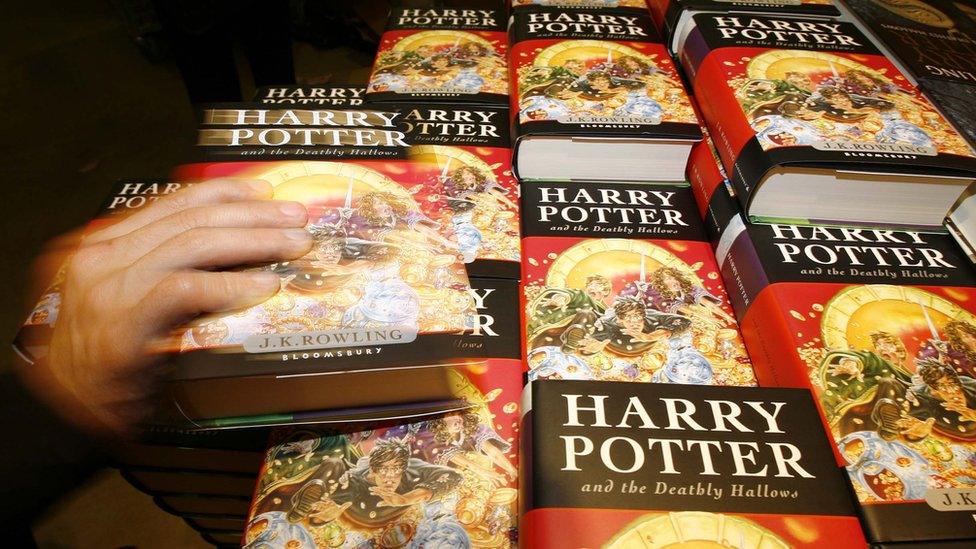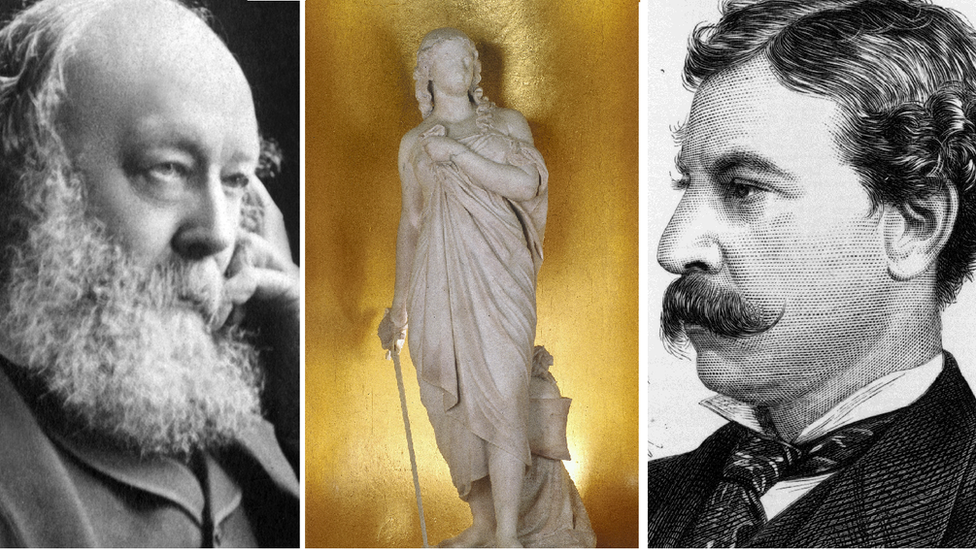Dictionary explores Yorkshire's link to Harry Potter
- Published

The new dictionary highlights links between language in use in historic Yorkshire and J K Rowling's Harry Potter novels
Harry Potter fans may know their squibs from their nifflers but may be surprised to learn some of the words could have their roots in Yorkshire.
Research for the Yorkshire Historic Dictionary suggests Harry, Ron and Hermione's vocabulary may have been influenced by the region's dialects.
The dictionary features words that were in use between about 1100 to 1800.
Editor Alexandra Medcalf said it was "plausible" the words and phrases had shaped JK Rowling's wizarding world.

JK Rowling is known to use dialect terms from other regions in her work
Ms Medcalf, project archivist at the Borthwick Institute for Archives, at the University of York, has edited the dictionary which builds on the lifelong work of Dr George Redmonds, who catalogued thousands of old Yorkshire terms and phrases over 60 years.
"JK Rowling's 'Harry Potter vocabulary' is famously steeped in mythology and folklore and she is known to use dialect terms in her work - for example, Dumbledore is a West Country word for bumblebee," she said.
"It seems plausible that old Yorkshire terms form part of the source of squibs, the Wiggentree and the Niffler."

Thousands of the words in the dictionary were catalogued by Dr George Redmonds
In the Harry Potter books, the word squib to refers to magic-born people who cannot use magic.
In the time of Guy Fawkes, who was born in York in 1570, a firework was known as a squib in the Yorkshire region.
Ms Medcalf said Rowling's use of the word may have been "derived from the phrase 'a damp squib' - a firework which can't go off".
The dictionary also records the verb to nifle, which meant to steal objects of little value, citing a court record from 1755 of a man being found guilty of nifling at Barnby Dunn, near Doncaster
In Fantastic Beasts And Where To Find Them, the Niffler is a creature with a penchant for stealing shiny trinkets.
The dictionary records wiggen as an old Yorkshire word for the mountain ash or rowan tree, which was considered to protect people from evil spirits.
In Harry Potter, the bark of the Wiggentree is used in potion-making.
Other words featured in the dictionary, which will be released next year, include a smoot - a small hole at the base of a hedge which hares pass through, day-gate - a 15th Century word for sunset, and winter hedge - an old word for a clothes horse.
- Published5 February 2017

- Published13 April 2017
